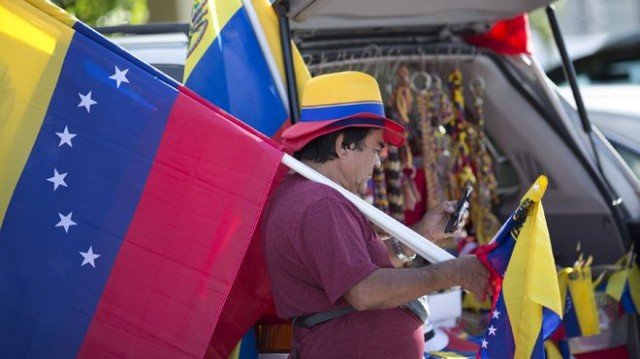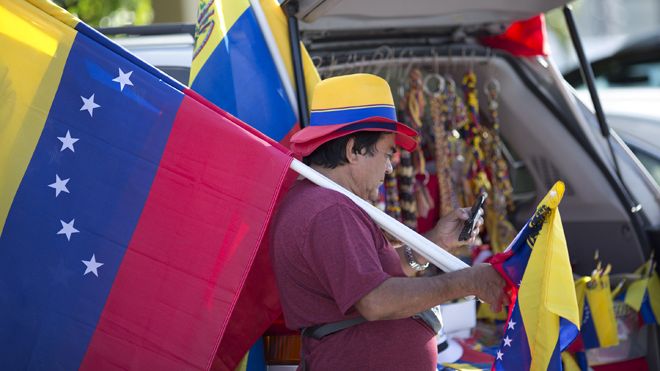The US government is imposing travel restrictions on a number of Venezuelan officials.
Officials did not specify how many people would be affected, but said those “who have been responsible for or complicit in human rights abuses” would not be “welcome” in the US.
The Venezuelan opposition has been lobbying for sanctions since thousands of protesters were detained during anti-government protests.
At least 43 people were killed in the protests.
The victims were from both sides of the political divide.

Relations between the US and Venezuela took a turn for the worse on Sunday when the former head of Venezuelan military intelligence, Gen Hugo Carvajal, was released from custody in the Caribbean and given a hero’s welcome in Caracas.
Gen. Hugo Carvajal had been detained on the Dutch Caribbean island of Aruba over US accusations of drug-trafficking activities.
The US Treasury said he had been protecting drug shipments by Colombian FARC rebels.
He was released after Venezuela claimed he had diplomatic immunity because he had been appointed as Venezuela’s consul in Aruba.
The US said his release was “deeply disappointing” and accused Venezuela of threatening Aruba and the Netherlands into freeing Gen Carvajal.
In a statement released on Wednesday, US state department spokeswoman Marie Harf said the travel restrictions were in response to “arbitrary detentions and excessive use of force” by Venezuelan officials as they tried to contain growing anti-government protest.
Hundreds of thousands of Venezuelans took to the streets in February and March in protest at skyrocketing inflation, high crime rates and shortages of some basic staples.
Key opposition figures behind the protests were arrested and have been charged with inciting violence.
Thousands of protesters were detained, many of them have since been released but there have been allegations they were intimidated, beaten and even tortured.
The Venezuelan government says it is investigating dozens of members of the security forces in connection with the allegations.
The demonstrations have since become smaller and less frequent but tensions in the deeply divided country remain high.
Venezuela’s President Nicolas Maduro has accused the opposition of trying to launch a coup against his government at the behest of “the imperialist US force”.
